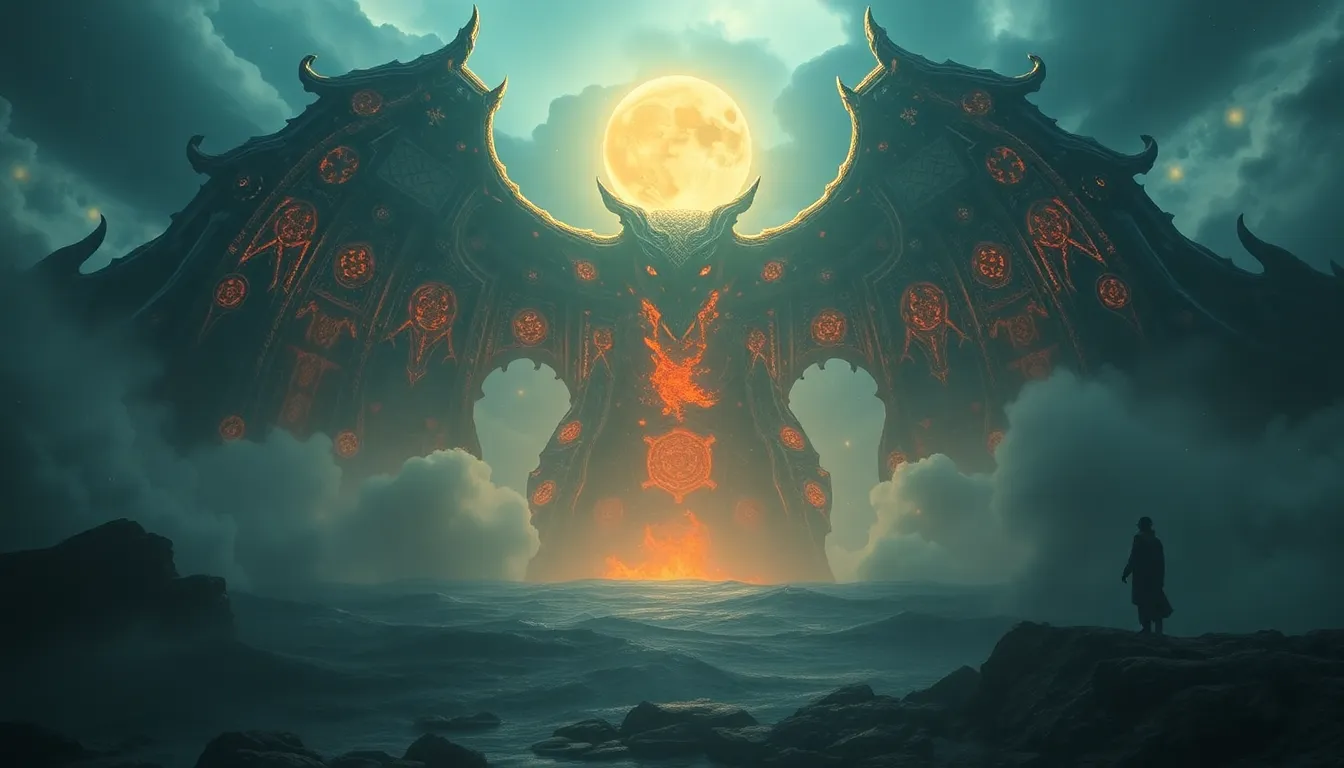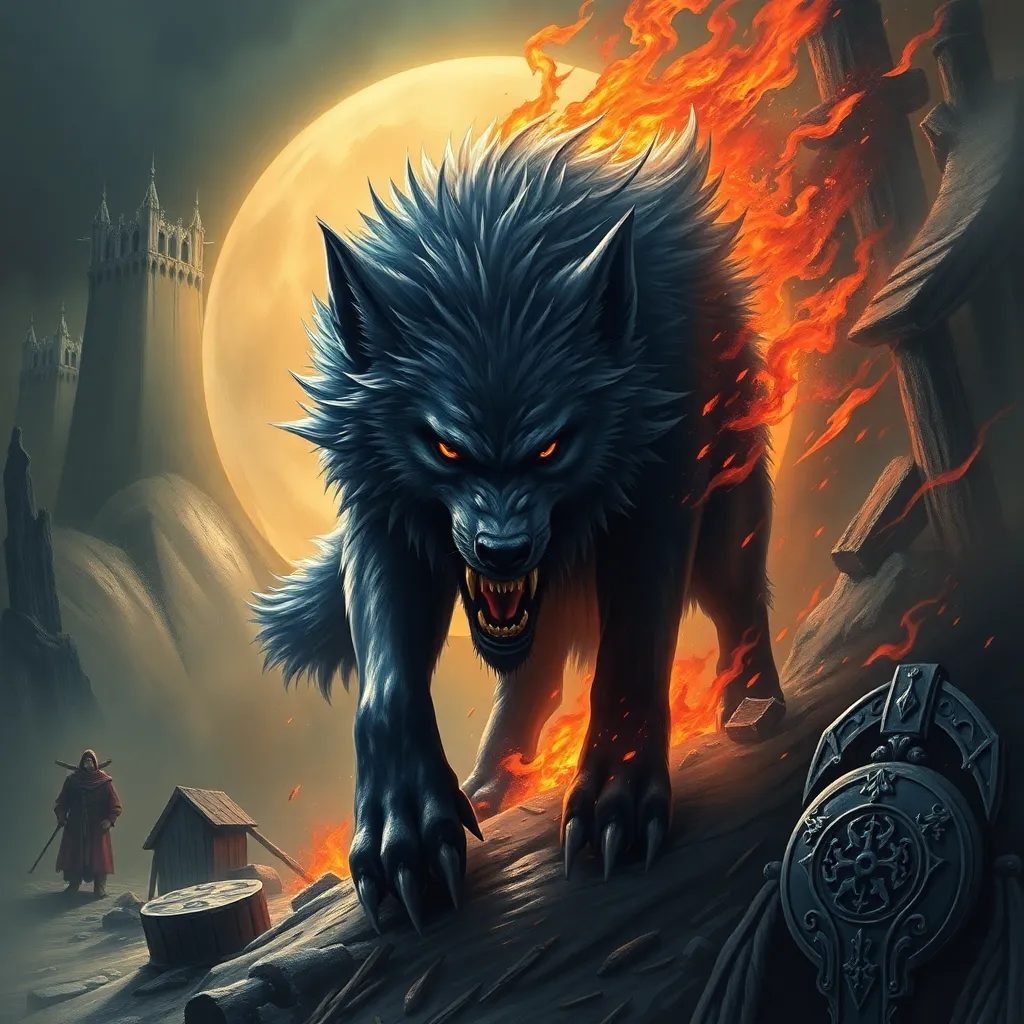Mythical Beginnings: Discover the World’s Most Unique Creation Stories
1. Introduction to Creation Myths
Creation myths are foundational narratives that explain the origins of the universe, earth, and humanity. They often serve as a lens through which cultures understand their place in the world and the nature of existence itself. These stories are significant because they provide insight into the beliefs, values, and traditions of different societies, offering a glimpse into how people across time and geography have grappled with existential questions.
Common themes in creation stories include the struggle between chaos and order, the emergence of life from non-life, and the relationships between humans, nature, and the divine. These myths often reflect the cultural, environmental, and historical contexts from which they arise, making them essential to the understanding of human civilization.
2. The Role of Nature in Creation Myths
In many cultures, nature plays a vital role in creation myths, often seen as a force that shapes existence. Natural elements such as earth, water, fire, and air are frequently depicted as primordial forces that contribute to the unfolding of life and the cosmos.
- Earth: Often symbolizes stability and nourishment, as seen in myths where the earth is personified as a mother figure.
- Water: Represents life and renewal, with many cultures viewing water as the source from which all things emerge.
- Fire: Associated with transformation and energy, fire myths often depict it as a crucial element in creation and destruction.
- Air: Typically symbolizes breath and spirit, reflecting the idea of life force that connects all living beings.
3. Cosmic Creation: Stories from the Stars
Celestial bodies have inspired numerous creation myths, with many cultures attributing the origins of the universe to cosmic events. The Big Bang theory, while a scientific explanation, has its mythological parallels in various traditions that describe the universe’s creation from a singularity or chaotic state.
In addition, constellations and celestial phenomena often play pivotal roles in these narratives, guiding the beliefs and practices of societies. For example:
- The ancient Greeks saw the stars as representations of gods and heroes, embedding their creation stories in the cosmos.
- Indigenous Australian cultures tell stories of the Dreamtime, where the stars are ancestors watching over the earth.
4. The Role of Deities and Divine Beings
Creation myths frequently involve powerful deities or divine beings who play a crucial role in shaping the universe and humanity. In polytheistic traditions, multiple gods often embody various aspects of creation, while monotheistic beliefs tend to focus on a single, all-powerful creator.
Some notable examples include:
- In Egypt: The god Atum created the world from chaos, emerging from the primordial waters of Nun.
- In Hinduism: Brahma is the creator god, part of the Trimurti, responsible for the creation of the universe.
- In Christianity: God creates the world in six days, as described in the Book of Genesis.
This comparative analysis highlights the diverse approaches to creation across cultures, revealing both commonalities and unique perspectives.
5. Unique Creation Stories from Indigenous Cultures
Indigenous cultures around the world possess rich creation myths that are deeply intertwined with their identities and ways of life. These stories are often passed down through oral traditions, emphasizing their importance in cultural continuity.
Examples of these unique creation stories include:
- Native American Myths: Many tribes have distinct creation stories, such as the Iroquois, who describe a Sky Woman falling to earth and giving birth to the land.
- Australian Aboriginal Dreamtime: This narrative describes ancestral beings creating the land, animals, and laws, highlighting a deep connection to the earth.
The oral tradition plays a crucial role in preserving these stories, ensuring that they remain vital parts of cultural identity and community cohesion.
6. Creation Myths in Ancient Civilizations
Creation myths from ancient civilizations such as Egypt, Mesopotamia, and Greece reflect the values and beliefs of their societies. These stories often serve to legitimize social structures and explain natural phenomena.
In ancient Egypt, the myth of Osiris encapsulates themes of death and rebirth, while Mesopotamian myths, like the Enuma Elish, depict a cosmic battle leading to the creation of the world. Greek mythology, with its pantheon of gods, offers a rich tapestry of creation narratives, including the Titanomachy, which reflects the transition from chaos to order.
7. The Influence of Creation Myths on Modern Spirituality
Ancient creation stories continue to influence contemporary spiritual practices. Many modern religions incorporate these narratives into their teachings, offering a sense of continuity and connection to the past.
For instance, creation myths are often integrated into modern religious narratives, providing context for beliefs about humanity’s purpose and existence. The storytelling aspect also facilitates community bonding and shared values among practitioners.
8. Science vs. Myth: Bridging the Gap
The relationship between scientific explanations and creation myths can be complex. While science offers empirical evidence for the origins of the universe through theories like evolution and cosmology, myths provide metaphorical and philosophical insights into human existence.
Rather than being mutually exclusive, myths can complement scientific understanding by addressing questions of meaning and purpose that science does not answer. This bridging of gaps encourages a more holistic view of existence.
9. The Evolution of Creation Stories in Contemporary Culture
Creation myths are not static; they evolve and adapt over time, especially in contemporary culture. Literature, film, and art often draw upon these narratives, reinterpreting them for modern audiences.
Globalization has further facilitated the exchange of creation stories, leading to new adaptations and interpretations. This cultural blending enriches the narratives, allowing them to resonate with diverse audiences.
10. Conclusion: The Enduring Legacy of Creation Myths
Creation myths remain crucial to understanding human existence, providing frameworks for interpreting the world and our place in it. They address fundamental questions about life, death, and the cosmos, offering insights that are still relevant in today’s fast-paced, technologically driven society.
As we navigate modern existential questions and cultural identity, the legacy of these myths continues to inspire, challenge, and connect us, reminding us of the shared human experience that transcends time and space.




